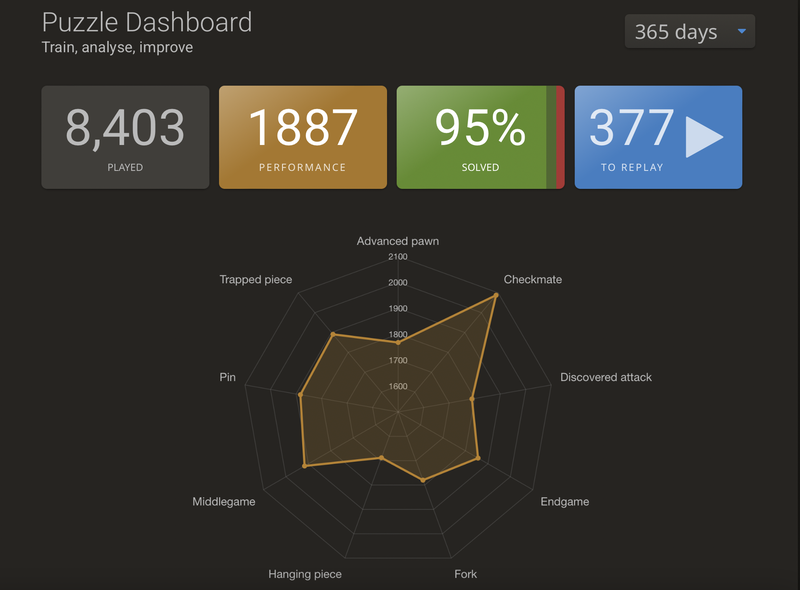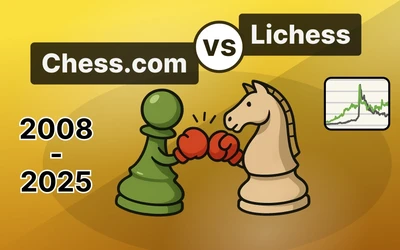
Godot13 @ Wikimedia Commons, cropped, https://creativecommons.org/licenses/by-sa/4.0/deed.en
100,000 puzzles. What?
Have you ever challenged yourself?Recently, I've lost a couple of bitter games. This is probably no news to anyone who is trying to improve.
Such setbacks are common. However, what's important is, how do we react? Does this push us to do something – and what?
Some will close their Lichess account forever. Others will rage about and desperately try to win more games. Yet others may decide to analyse the game (which is necessary, but not enough).
I thought we could try and take a rational approach. If I keep losing on elementary tactics, isn't it time to put this right? At least the elementary level should come under my control.
Now, there are many ways to do that. Lichess puzzles are just one – but a good one. Also, there is more than one way to do puzzles. I've already described the Bruce Lee approach.
This time though, it's about the decision. How long am I going to lose for the same reasons? Can I make it at all? Or someone else, for that matter? Could we become masters of simple tactics so as to never lose on them, at least?
So part of this is determination. Another part is the volume. You must get certain experience and must have seen patterns a certain number of times, or it will all still be theory.
You (I mean, we all) must overlearn tactics. Know them so well that they become your second nature. See them without thinking. Also notice them for your opponent. Also notice them after your candidate move happens. Also, be confident about your calculation. And what is most challenging, play a good move when there is no tactics!

So I am challenging myself to complete 100,000 puzzles on Lichess.
Of course, there are more strategies involved in this. For example, many of the puzzles will be easy ones but done in great numbers by pattern, just to learn the patterns. Also, I am going to get to a stage where puzzles or patterns at a certain level will start repeating. There are also calculation puzzles, endgame puzzles, puzzles done for your opponent with the board flipped, and this and that and the other thing.
But the challenge still stands. The goals of this are: (1) master easy pattern recognition; (2) learn to calculate systematically; (3) learn to apply a professional approach to every position.
You may say that this alone does not guarantee tactical mastery. This is right.
You may also say that one must do more than that to improve at tactics. Also right.
Finally, you might think that this is a bit dumb to condition one's success on the sheer number of puzzles. Absolutely!
However, it's better to do something than nothing. And it's definitely better to do it systematically than haphazardly.
So here is my profile, open to everybody, so you are welcome to track my progress. (Of course, you could spend your time better doing your own tactics!) And I hope to publish updates for you on how this is going.
What would you say to this? Are you game?
You may also like
 paunchypawn
paunchypawnA tactical jewel of a game in the French
You've never seen so many pins at once paunchypawn
paunchypawnAnother wild way to do Lichess puzzles
How big does a set of forks have to be? CM HGabor
CM HGaborHow titled players lie to you
This post is a word of warning for the average club player. As the chess world is becoming increasin… ChessMonitor_Stats
ChessMonitor_StatsWhere do Grandmasters play Chess? - Lichess vs. Chess.com
This is the first large-scale analysis of Grandmaster activity across Chess.com and Lichess from 200… IM theScot
IM theScotLife Hacks for Getting to IM
A post about the life-skills that help you in chess. paunchypawn
paunchypawn